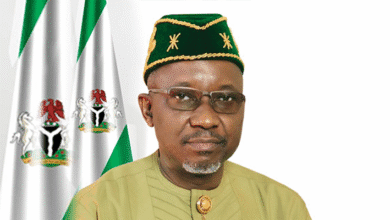Infrastructure Key To Expanding Domestic Gas Utilisation -FG

The Federal Government has said it would continue to promote the development of gas infrastructure in order to expand the domestic utilisation of gas in Nigeria.
This was disclosed by the Permanent Secretary, Ministry of Petroleum Resources, Amb. Gabriel Aduda on Thursday at the 2023 edition of the Oloibiri Lecture Series and Energy Forum (OLEF) in Abuja.
TheFact Daily reports that the event was an annual lecture series organized by the Society of Petroleum Engineers, (SPE) Nigeria Council to commemorate the first oil-well discovery in Nigeria.
The lecture has since its inception focused on contributing to oil and gas policy development in Nigeria and ultimately for Sub-Saharan Africa.
Speaking, Amb. Aduda said, the government was creating enabling environment and partnerships with the private sector to build pipelines, storage facilities, and other infrastructure necessary for the transportation and storage of gas.
“This infrastructure is essential for ensuring that gas is available when and where it is needed, especially in expanding domestic utilisation and it can also help to reduce the cost of gas by increasing competition and efficiency.
“We are already achieving very amiable results in the domestic intake of LPG and CNG in several small and medium scale industries across the country”, he said.
Aduda said, the gas is a cleaner-burning fossil fuel than oil or coal, and it can play a significant role in reducing greenhouse gas emissions, adding that the utilization of gas could help to diversify Nigeria’s energy mix and reduce the country’s dependence on oil.
He stated that effective utilization of gas resources was a lever for enhancing energy security and achieving net-zero emission goals in Nigeria.
He said, “by working in collaboration with stakeholders in the industry we can ensure that Nigeria maximizes the potential of its gas resources while also reducing its carbon footprint and enhancing energy security”.
Group Chief Executive Officer (GCEO), NNPC Limited, Malam Mele Kyari, said that the Nigeria’s domestic gas infrastructure network has capacity to transport 6.9 billion Standard Cubic Feet (BCF) of gas to support power generation and gas-based industries.
Kyari said the NNPC Ltd. was taking advantage of Nigeria’s huge natural gas reserves of over 200 Trillion Cubic Feet (TCF) with a potential to grow to 600 TCF as more investment is expected due to recent resolution of the Production Sharing Contract disputes with partners.
The significant reserve, according to him, would serve as a low-carbon energy alternative that would support growth in power and industrial sectors, address energy poverty, reduce carbon-footprint and create more employment opportunities.
“NNPC is playing a leading role in the realisation of National Gas Expansion Programme, which seeks to deepen natural gas utilisation as an alternative transportation fuel, and an important feedstock for gas-based industries development.
“We are working assiduously to ensure timely delivery of gas pipeline infrastructure projects, including the Abuja-Kaduna-Kano gas pipeline corridor, planned Nigeria-Morocco and Trans-Sahara Gas Pipelines, that will connect West African countries to deliver natural gas to international markets,” he said.
For the gas export market, he said the on-going Nigeria Liquified Natural Gas (NLNG) Train Seven would expand Nigeria’s LNG production capacity from 22 Million Tons Per Annum (MTPA) to about 30 MTPA.
Earlier, the Executive Secretary, Petroleum Technology Development Fund (PTDF), Dr. Bello Aliyu Gusau pledged the Fund’s continued partnership with SPE for the benefit of the industry and the country’s economy.
Dr. Gusau who was represented by the General Manager, Strategic Planning and Documentation, Mr Jide Adebulehin, said, the PTDF was also ready to partner with other agencies in the industry especially in the area of human capital requirement for the energy transition.
The event with the theme: ““Effective Gas Resources Utilization: A lever for Enhancing Energy Security and Net-Zero Emission Goals in Nigeria” witnessed oil and gas experts from public and private sectors.






